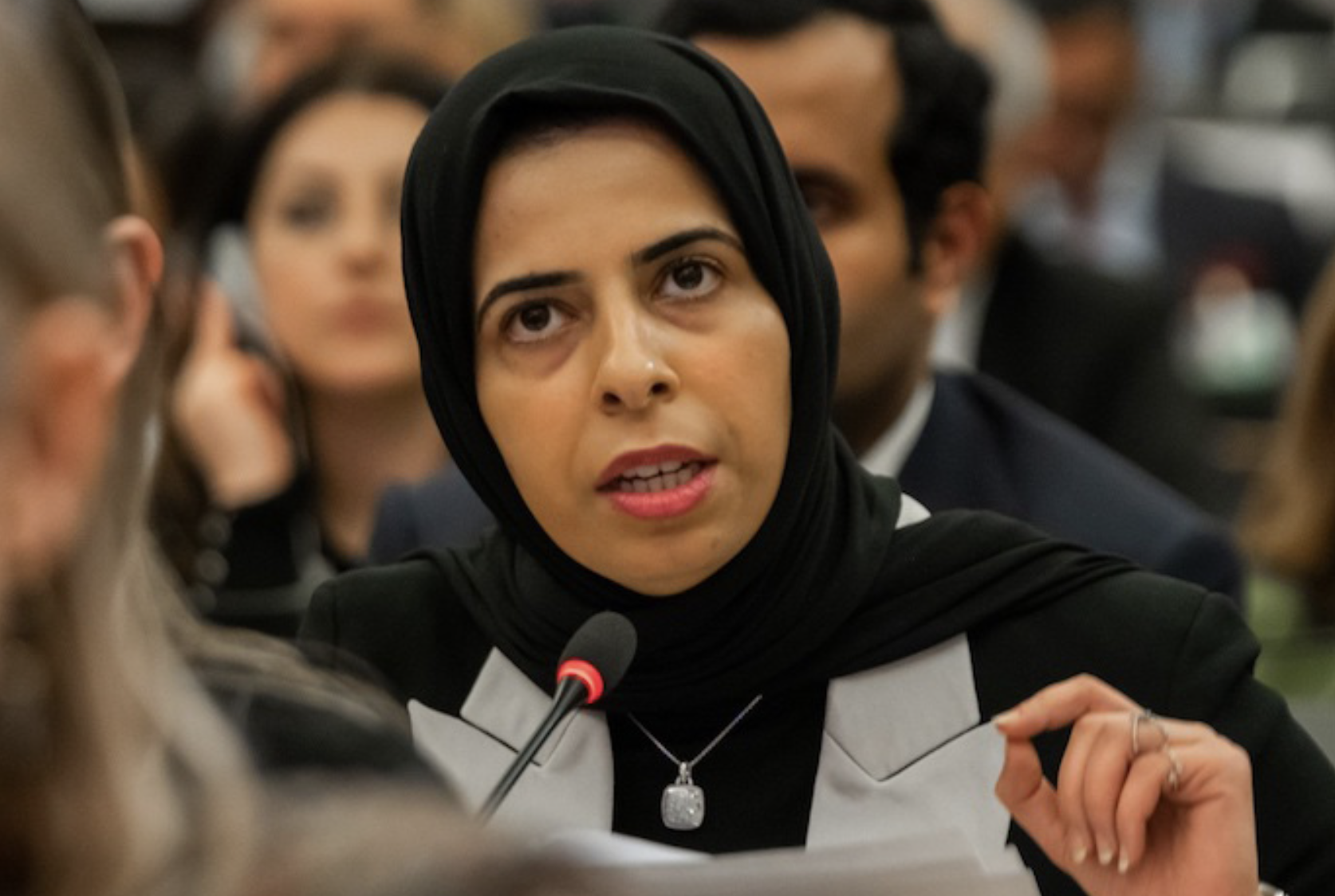The Gulf state was subjected to Islamophobic rhetoric since it made history in 2010, when it won the bid to host the 2022 FIFA World Cup as the first Muslim and Arab country to do so.
The consequences of ongoing Islamophobia “threaten the whole world”, Qatar’s Minister of State for International Cooperation Lolwah Al Khater told a roundtable on Monday.
“The consequences of this phenomenon [Islamophobia] are not limited to Muslim countries and societies only. They also threaten the whole world, as a result of its long-term and cross-border repercussions,” Al Khater said in a video shared by the Gulf state’s foreign ministry on Tuesday.
The roundtable on Islamophobia was held in Qatar with the attendance of more than 30 experts and policy makers from the Gulf Cooperation Council (GCC), the United States, Europe, and Asia.
According to Qatar’s foreign ministry, the panel focused on “policy challenges and the initiation of new approaches for collective action and unity of purpose to address structural and institutional Islamophobia”.
During her speech, Al Khater warned that the “malign Islamophobic discourse has reached dangerous levels”
“The deliberate targeting of Islam and Muslims is on the rise around the world. Instead of stopping it, prejudice and deliberate discrimination against Muslims are being encouraged and fueled,” the top Qatari official said.
Al Khater reiterated Qatar’s commitment to supporting global efforts to fight Islamophobia, anti-Muslim hate, and racism.
She stressed that Qatar “is committed to its firm position towards rejecting violence in all its forms including the attack on the sovereignty of states and the right of peoples to self-determination, whether in Ukraine or Palestine.”
“There was no discrimination based on creed or race by the State of Qatar in its position towards those crises and the issue of providing humanitarian and development assistance to those affected,” Al Khater noted.
Qatar, the first Arab and Muslim host of the FIFA World Cup, was hit with a mass Islamophobic campaign in the run up to the 2022 event.
Qatar was heavily criticised by western media for its treatment of migrant workers, triggering mass labour reforms in the country. Despite this, officials say such progress was widely overlooked by the Western world and accused media outlets of spearheading a calculated campaign against the Gulf state.
Similar campaigns targeted Morocco’s national team, which became the first African and Muslim country to reach the semi-finals in World Cup history. Such incidents involved comparing scenes of the players celebrating with their mothers to monkeys.
Global Islamophobia
Al Khater’s comments come amid rising Islamophobia in Europe and North America.
Since the start of the year, far-right leaders in Europe – Denmark, the Netherlands and Sweden – have launched provocative Quran burning stunts that triggered global outrage and drew condemnation from Muslim countries, including Qatar.
Last year, the Collective for Countering Islamophobia in Europe (CCIE) reported a “remarkable rise of Islamophobia and the policies that it inspires”, as quoted by Anadolu Agency.
CCIE, a Belgium-based anti-Islamophobia group, attributed the spike in incidents to the rise of nationalism with governments downplaying its risks.
Quantifying the incidents, CCIE said it received 787 incidents of Islamophobia throughout 2022, including 527 Islamophobic acts.
Other incidents included 467 acts of discrimination, 128 of provocation, 71 of insults, 27 of physical violence along with other harrowing cases.
The United Kingdom and France were described by the report as “the main spots of anti-Muslim hatred and Islamophobic incidents.”
The so-called “War on Terror” that emerged following the 9/11 Attacks in the United States was widely seen as a guise under which Islamophobia was rolled out globally and saw many in the west associate Islam to the word “terrorism”.







